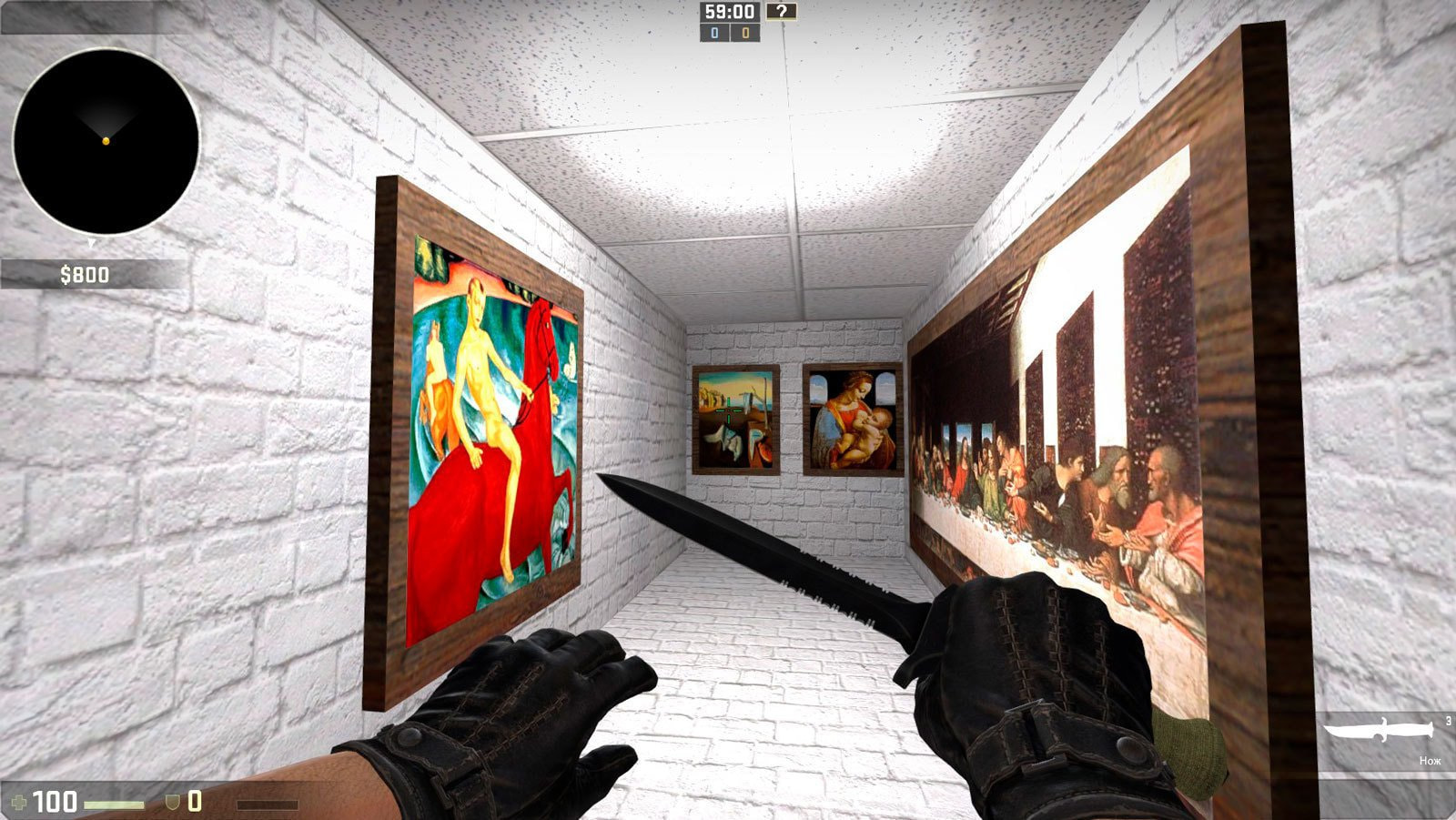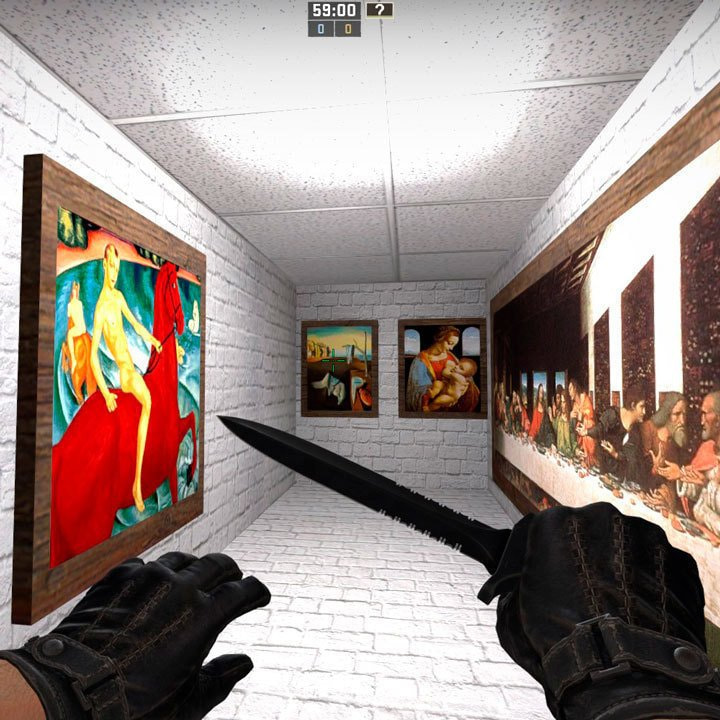The IAM public program continues with a discussion on museology, which will take place in the space of the video game Counter Strike: Global Offensive.
In her article A Tank on a Pedestal, Hito Steyerl looks at mass culture to see the conceptual forces that direct the development of contemporary museums. She points at the danger of re-activating and repeating the past, which can be encouraged by a museum, whose permanent displays present the past as a static phenomenon. A static view of time is pleasing to people, and especially so to the ruling classes who are interested in maintaining the corporate status quo. In the blockbuster Edge of Tomorrow, the museum becomes the center of alien invasion—a headquarters from which aliens activate the time-loop that every day respawns humans, like characters are respawned after death in a shooter.
CS:GO is a popular shooter and has a large community of fans who take part in cyber tournaments and produce abundant content: from streams, tutorials and custom maps, and skins, to theatre shows made using the game’s engine. We have chosen ten maps created by players and related to the museum as the space for the discussion. Visual exploration of locations and virtual tours of exhibitions will be accompanied by shooting, headshots, and respawns common for this kind of environment.
The discussion will be split into three sessions, each devoted to one topic:
- Today, archiving, which used to be the museum’s main function, is losing its key role in the museum’s activities. Contemporary archiving, preservation and conservation practices are drifting towards greater mobility on the one hand and a more critical approach on the other.
- Senior artists see museum exhibitions as the ultimate legitimisation of artistic practices. However, in the time of scroll-based aesthetics and tab-oriented knowledge, the museum’s focus has shifted from completed artworks to situations and contexts of artistic production.
- Museum practices have always spread beyond museums themselves: to home displays, private collections, improvised displays of citizens’ will, and graffiti spots.
Participants: Sasha Obukhova, Maksim Podvalny, Boris Klyushnikov, Sara Culmann, Dmitry Khvorostov, Lena Klabukova

